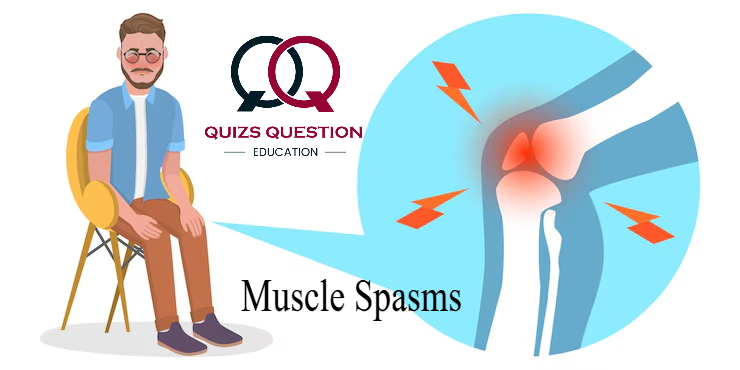Muscle spasms are sudden, involuntary contractions of a muscle or group of muscles. They can range from mild twitches to painful cramps and can occur in any part of the body, but are most common in the legs, back, and neck.
Common Causes:
- Dehydration
- Electrolyte imbalances (low potassium, calcium, or magnesium)
- Muscle fatigue or overuse
- Poor blood circulation
- Nerve compression (e.g., herniated disc)
- Medications (like diuretics or statins)
- Medical conditions (such as multiple sclerosis, diabetes, or thyroid issues)
Relief & Prevention:
- Stretching and massaging the affected muscle
- Applying heat or cold
- Hydration – drink water or electrolyte-rich fluids
- Magnesium or potassium-rich foods (e.g., bananas, spinach, nuts)
- Regular exercise to keep muscles conditioned
- Avoiding overexertion or poor posture
Would you like to talk more about specific spasms you’re dealing with, like where they’re happening or how often?
Q 1. Which of the following electrolytes is most commonly associated with muscle spasms when deficient?
A. Potassium
B. Sodium
C. Chloride
D. Iron
Show Answer
Answer:-A .PotassiumQ 2. Muscle spasms are best described as:
A. Voluntary muscle contractions
B. Slow and sustained muscle relaxation
C. Involuntary, sudden muscle contractions
D. Muscle atrophy
Answer: C. Involuntary, sudden muscle contractions
Show Answer
Answer:-C. Involuntary, sudden muscle contractionsQ 3. Which condition is least likely to cause muscle spasms?
A. Dehydration
B. Overexertion
C. Multiple sclerosis
D. Viral infection
Show Answer
Answer:-D. Viral infectionQ 4. A common site for nighttime muscle spasms is:
A. Arms
B. Neck
C. Calves
D. Fingers
Show Answer
Answer:-C. CalvesQ 5. Which mineral is often recommended to help prevent muscle cramps?
A. Zinc
B. Magnesium
C. Fluoride
D. Selenium
Show Answer
Answer:-B. MagnesiumQ 6. Which of the following is a non-pharmacological method to relieve a muscle spasm?
A. Antibiotics
B. Stretching the affected muscle
C. Corticosteroids
D. Antivirals
Show Answer
Answer:-B. Stretching the affected muscleQ 7. Muscle spasms can be a side effect of which type of medication?
A. Diuretics
B. Antacids
C. Antidepressants
D. Beta-blockers
Show Answer
Answer:-A. DiureticsQ 8. Which vitamin deficiency is sometimes linked to muscle spasms?
A. Vitamin A
B. Vitamin D
C. Vitamin K
D. Vitamin C
Show Answer
Answer:-B. Vitamin DQ 9. Long periods of physical activity without proper hydration can lead to muscle spasms due to:
A. Increased iron levels
B. Fluid retention
C. Loss of electrolytes
D. Bone stress
Show Answer
Answer:-C. Loss of electrolytesQ 10. A person experiencing frequent muscle spasms should first consider:
A. Evaluating hydration and nutrition levels
B. Visiting a dermatologist
C. Increasing sugar intake
D. Taking sleeping pills


Leave a Reply